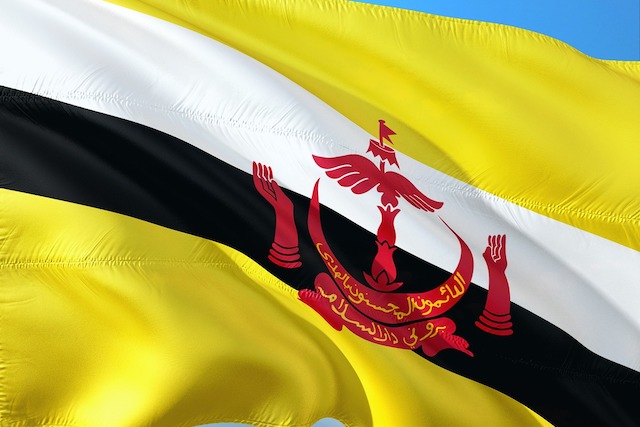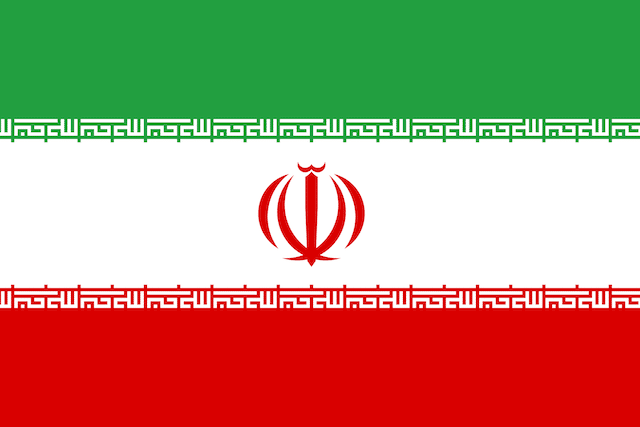Despite the pressure from many countries to hold each other to better human rights standards, as well as instant global media and international pressure from common folk, groups of people still find reasons to persecute other groups of people for being the wrong kind of different.
Unfortunately, a big part of the problem is that many of the countries doing the most discriminatory practices are some of the richest or most “developed” countries in the world and they have an outsize influence on the politics of their region, and even the world at large. In today’s article, we will go over 10 of the worst countries to be persecuted for reasons you can’t control…
9. Uganda

Back in 2014, Uganda was considering a draconian bill to punish gay people for being gay, and a United States pastor named Scott Lively (who has tried to run for governor of Massachusetts, among other things) was alleged to have inspired the creation of the bill years previously, and had wanted to make it a bill that punished homosexuality with death. In the end, the bill signed in 2014 was watered down due to international pressure, and only punished initial acts with 14 years in prison and a second (or worse enough) homosexual act with life in prison.
The law was struck down due to a technicality by the high court of Uganda, not for any particular human rights reason, so the whole thing is still kind of in limbo. The current leadership of Uganda seems to have held off — for now — on reintroducing the bill and ensuring they don’t have any technical problems this time in passing it, mainly due to international pressure to avoid human rights abuses. However, the bill is still quite popular among many lawmakers in the country who have threatened to reintroduce it, and homophobic incidents have risen since the introduction of the bill, which has made Uganda a very hostile place for gay people to live.
8. Brunei

Brunei is a small, oil rich, mostly muslim country in Southeast Asia. It is home to only about 430,000 people at the last census, so it isn’t particularly large, but in recent years it has still managed to become newsworthy because of the draconian new laws put in place by their supreme leader, Sultan Hassanal Bolkiah, back in 2014. Essentially, he changed the country’s penal code to reflect sharia law as closely as possible. Now, considering Brunei is a largely muslim country most people didn’t make that much of an outcry. However, just very recently in 2019, the Sultan added some new amendments to his penal code to make the rules even harsher.
Gay sex was already punishable by up to 10 years in prison, but now you can be whipped for it or even killed by stoning. The Sultan also decreed that adultery was now punishable through death by stoning as well. To make matters worse, the rules are supposed to also apply to foreigners, even if they are not muslim, which has the international community in an uproar. George Clooney, Elton John, and several other high profile celebrities are running a boycott of nine hotels throughout the world connected to the Sultan of Brunei in the hopes that if they can hit him in his pocketbook, he will reconsider the ugliest parts of the sharia law system he has been working on over the last few years. So far, though, the Sultan does not seem interested in caving to international pressure (though there is a “moratorium” on the harshest penalties, at least for now.) Instead, he seems to hope other countries will respect that Brunei just has its own way of doing things as a sovereign nation, and leave him alone.
7. Saudi Arabia

Many people heard that last year, Saudi Arabia finally relaxed the ban on allowing women to drive motor vehicles. It was heralded as a huge step forward, and people talked about Crown Prince Mohammed Bin Salman being a reformer, and to some extent he is still seen as one even after the debacle involving his alleged involvement in the death of Jamal Khashoggi. He was the one who relaxed the ban on women driving, but he also arrested many female activists who had agitated for the rule change and for women’s rights in general. This flexing of his dictatorial muscle may have only been to assert his authority, but it created a chilling effect on women’s rights activism in Saudi Arabia. If women are afraid that even when the crown prince ultimately agrees with them they will still be jailed for protesting, it makes it harder for future women to protest about issues in the country.
And the truth is, according to a poll taken of 550 women’s issues experts by Reuters/Thompson last year after the relaxation of the female driving ban, Saudi Arabia still has a very long way to go. There are over 195 sovereign countries in the world, and despite being one of the richest, they are the fifth most dangerous country for women, beat only by India, Afghanistan, Syria, and Somalia. The main reason for this is the guardianship law, which the crown prince seems uninterested currently in changing, and which women will now be even more afraid to agitate for after so many arrests due to protests regarding the driving ban. This guardianship law states that women cannot leave the country, or even work, without the permission of a male relative. This makes it all but impossible for a woman to leave an abusive relationship, make it on her own, or be independent; she will always be under the control of one of the men in her life.
6. Iran

In Iran, sodomy is still a crime and the law states that sodomy can even be punishable by death, although this is rarely ever the case unless the sodomy was done against the other person’s will. However, gay people can and do often find themselves hit with harsh prison sentences and other punishment if found to be living any kind of gay lifestyle, and will usually be socially ostracized as well. Many in the medical profession have found a unique and cruel solution: give gay people sex change operations to “fix them.”
Now, if you are transgender, a sex change operation that is fully accepted by the government and covered by your insurance might sound great. But these aren’t transgender people, just your garden variety homosexuals. The medical profession and people’s friends and families often pressure them to get sex changes, in order to make them “right.” The problem is, people still tend to treat transgender people even worse than they do in the States, and so it doesn’t really fix anything, even for the few that were actually transgender and not just gay. All it really does is permanently mutilate people who don’t need an operation, and create even more social confusion and strife.
Now, to be clear, the government doesn’t mandate that you do this, but because being gay is not okay in Iran, but being a man trapped in a woman’s body is, the social pressure to get a sex change can be incredibly hard to fight.
5. USA

The United States is supposed to be one of the more progressive countries in the world, at least as far as many Americans are concerned. After all, America prides itself on protecting personal freedoms. The fact of the matter is that while minority rights may not always be properly respected, the laws on the books at least state that you cannot discriminate against people for their race. However, when it comes to being gay, it’s a different story.
Only 22 states, along with Washington D.C, protect you from being fired for being gay. Another 11 give you that protection, but only if you are a public employee. While this doesn’t necessarily mean someone will use it against you, it leaves you living in fear for your job if you are homosexual in many states, and leaves gay people feeling like second class citizens in their own country — even after the recent small wins on gay marriage.
There are also many states where it is still extremely difficult to adopt children if you are gay. While the Supreme Court has ruled that gay people have the right to adopt, many adoption agencies are run by religious organizations, which sometimes try to claim a religious exemption, and are stalling in the courts. Part of the reason this is such a big battle is that in some states or regions, the religious-run agency is pretty much the only game around. Of course, this isn’t the only way the USA persecutes some of its own.
Many people like to think that racism was fixed, segregation was removed, and it was all over after the Civil Rights Act. Unfortunately, this just isn’t true. The problem was that much of the damage had already been done. Black people had been discriminated against when it came to rentals and buying houses for years, in order to create all white neighborhoods, and black people were frequently shunted to the ghettos, even in the parts of the country where segregation wasn’t practiced as an official policy. By the time segregation really came to an end and the Civil Rights Act made it harder for discrimination by property owners, people were very nicely divided up already.
To make matters worse, the way the United States government policies work, it is unlikely that this will change much over time. The vast majority of school funding is based on local tax revenue — mainly from property taxes, and not the state — so this ensures that poor communities stay poor. This also means that those who live in the area are rarely going to be able to make it out of that community, and richer people with money are not likely to ever come in.
4. Chechnya

Chechnya is a Republic in the Southwestern part of the Russian Federation, and is a mostly muslim and rather conservative nation. Back in 2017, according to many sources (including a report by the Organization For Security And Co-operation In Europe), Chechnya was rounding up a massive amount of suspected gay men, torturing them, threatening them, and sometimes even encouraging their families to kill them as a matter of honor. This is because some extreme Islamic sects engage in honor killings to cleanse the family of shame if someone breaks a bad enough rule.
The Chechen authorities could then look the other way, and pretend that the actual killings had nothing to do with the government. Of course, the Chechen government has denied pretty much all of it from the beginning, and has taken the stance that different sexual orientations simply don’t exist at all in Chechen culture. In 2019, the Russian LGBT network alleged that Chechnya is back at it again with another serious purge, and that since the first purge started, they have helped roughly 150 people get to safety who were at risk from the Chechen government. They also allege that since the government started their most recent purge in 2019, there have been at least 40 detained and two killed by Chechen authorities.
3. Myanmar

Most people consider Buddhists to be an entirely peaceful people, mainly due to the Western conceptions of their religion. However, being Buddhist doesn’t necessarily mean peaceful behavior, and this has been no more apparent than in Myanmar (formerly Burma). Following a 2012 election, a Buddhist woman was raped and killed by a Rohingya Muslim — a minority group in the largely Buddhist nation. Now, obviously one man’s behavior should not reflect on an entire people, but perhaps many of the citizens, and the government, were just looking for an excuse. Roughly 140,000 Rohingya were put in open air concentration camps, and the international community started investigating, alleging after looking over conditions and talking to people that potential genocide was being attempted.
Since then, investigators and reporters from around the world have alleged that their discoveries have shown shocking conditions, and what looks like a possible coordinated attempt at genocide by the government of Myanmar. The government denies not only being involved, but also the violence itself; however, the evidence of something going on is hard to ignore, even if it doesn’t end up technically qualifying as genocide, whether intentional or otherwise. Since the alleged genocide has begun, well over 700,000 Rohingya have fled from the country, mostly to neighboring Bangladesh, bringing back stories of rape, murder, arson and Buddhist citizens being encouraged by the government, and even assisted by them, in destroying Rohingya and taking everything they once had for themselves. Now, again, the government of Myanmar has steadfastly denied all of this, but there is good reason to believe the stories have some truth to them. Some of those who have fled and faced repatriation have killed themselves before such a possibility could occur — they would rather die than face the persecution in their home country again.
2. Qatar

Qatar is an extremely oil rich country in the gulf region, and has recently been in the news due to their row with Saudi Arabia. However, after that whole thing mostly fizzled out, everyone but Amnesty International and a few other activist organizations more or less stopped paying attention. The problem is that Qatar is a nation of almost entirely migrant workers, who are not really considered for full status or full rights of any kind, as it would overwhelm their native population. In fact, the problem has become so severe that in advance of building for the 2022 World Cup that Qatar is hosting, they currently have almost 2 million migrant workers, which is close to 90% of their entire population.
This, unsurprisingly, has led to a lot of abuses. One of the worst laws, which the government has been slowly rolling back due to international pressure, made it illegal for a migrant worker to exit the country without the permission of their employer, and they also relied on their employer for visas and sponsorship. This was decried by many in the international community as basically modern day slavery — not just in all but name, but pretty much written down and defined in law. Now, the changes still allow employers to keep 5% of their employees for now from “exiting,” and with the employee’s signed permission, they can still take their passport. According to Amnesty International and others, Qatar still has a lot to do if they want to reach any kind of decent human rights conditions for their migrant workers before the World Cup rolls around.
1. United Arab Emirates

Dubai, being one of the seven emirates of the United Arab Emirates, is not exactly known around the world for being female-friendly. In fact, most people assume that the UAE, in general, has rules pretty similar to Saudi Arabia. What many people may not know, however, is just how ridiculous the laws in Dubai actually are, and just how bad it really is for women there. In 2016 a British woman visiting Dubai reported to the police that she had been gang raped by several British nationals. While most people would expect the police in any country to be sympathetic to such a charge and immediately start looking for the perpetrators, she was immediately jailed upon suspicion of extramarital sex.
The problem is that the law in Dubai states that any sex you have outside marriage is illegal. Now, it isn’t necessarily that they punish non-consensual sex, but in the United States and much of the Western world, we operate on a general principle of innocent until proven guilty. The problem is that in Dubai, when they find out you had extramarital sex, they immediately consider you as under investigation until the courts decide if it was truly rape or not, as you reported it to be. This, of course, can be quite traumatic for any woman who has been raped, so it’s not exactly a great country for women to live, work in, or even visit. As for the woman in question who was arrested, she was eventually fully released due to international pressure, but at first they only released her on bail after confiscating her passport.